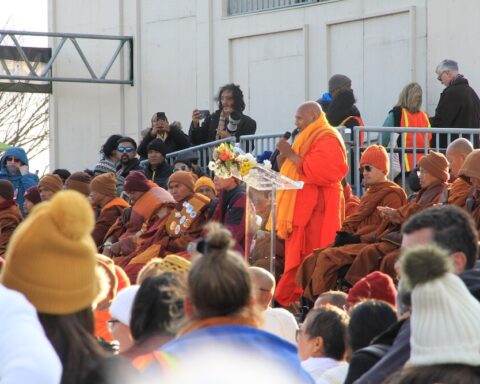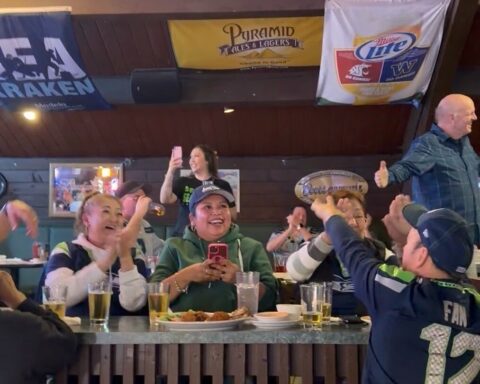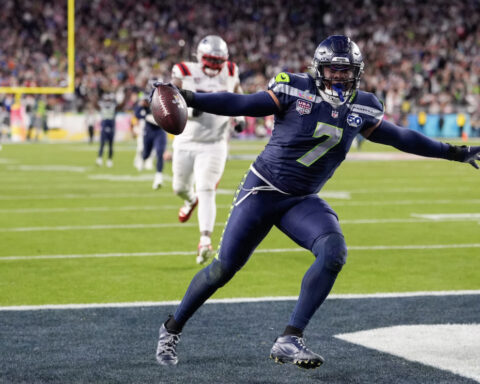By Vida Poyner-Chillious
Howard University News Service
TikTok user Simi Light fears the potential consequences of the Supreme Court’s unanimous decision to uphold a national security law requiring the popular app to be sold to a U.S. company or banned by Sunday. Under Friday’s ruling, the app would shut down during this weekend’s political vacuum as power transfers to Donald Trump, who now supports TikTok.
“I fear the ban is next-level censorship,” Light said. “Why do they suddenly care about how our information is leaked? The Supreme Court is more concerned with overturning an app that has changed the course of people’s lives and not on gun reform, student loan debt or climate change.”
“No other app, in my opinion, has the same effect as TikTok,” said Light, a Howard University alumna who has used the app since 2021 to learn about new travel locations, hobbies and mental health coping mechanisms. “I’ve found solace in the community my algorithm created.”
TikTok Inc. v. Garland challenges the government’s authority to restrict apps like TikTok over alleged risks to user data and potential influence by foreign governments. The petitioners are TikTok, a U.S. subsidiary of ByteDance Ltd., a Chinese technology company, and a group of U.S. TikTok users. The respondent is Merrick Garland, the U.S. Attorney General.
This case revolves around the Protecting Americans from Foreign Adversary Controlled Applications Act (PAFACAA), passed by Congress on April 24, 2024. This law aims to address national security concerns about foreign companies potentially using downloaded applications to access sensitive information. Under the law, companies that pose security risks must dispose of their U.S. operations to a domestic entity or face a ban.
TikTok, which has 170 million users in the U.S., argues that banning the app would violate the First Amendment by restricting a platform that enables free expression, its filings stated. The company has appealed previous court decisions that upheld the law.
During oral arguments at U.S. Supreme Court on Jan. 10, Solicitor General Elizabeth Prelogar argued on behalf of the federal government that national security concerns outweigh the impact on speech. “The First Amendment does not bar Congress from taking that critical and targeted step to protect our nation’s security,” Prelogar said.
“Data collection and analysis is a common practice in this digital age,” the Supreme Court said in its ruling a week later. “But TikTok’s scale and susceptibility to foreign adversary control, together with the vast swaths of sensitive data the platform collects, justify differential treatment to address the government’s national security concerns.”
“Access to such detailed information about U.S. users, the government worries, may enable ‘China to track the locations of federal employees and contractors, build dossiers of personal information for blackmail and conduct corporate espionage.”
Justice Neil Gorsuch expressed reservations about the court’s quick turnaround in hearing arguments and issuing an opinion before the law’s Sunday deadline, but he sided with the majority.
“Without doubt, the remedy Congress and the president chose here is dramatic,” Gorsuch said. “The law may require TikTok’s parent company to divest or (effectively) shutter its U.S. operations. But before seeking to impose that remedy, the coordinated branches spent a year in negotiations with TikTok exploring alternatives and ultimately found them wanting.”
President-elect Trump has indicated that he might consider saving TikTok, which would be a reversal from his previous stance during his trade war against China.
“The Supreme Court decision was expected, and everyone must respect it,” Trump said in a post Friday morning on Truth Social. “My decision on TikTok will be made in the not too distant future, but I must have time to review the situation. Stay tuned!”
During his previous administration, Trump signed an executive order on Aug. 6, 2020, to ban TikTok. “The United States must take aggressive action against the owners of TikTok to protect our national security,” he said at the time.
View this post on Instagram
TikTok CEO Shou Zi Chew responded to the decision in an Instagram reel, expressing gratitude to President-elect Donald Trump. “I want to thank President Trump for his commitment to working with us to find a solution that keeps TikTok available in the United States,” Chew said. “This is a strong stand for the First Amendment and against arbitrary censorship.”
In the meantime, some Americans have been joining other social media sites such as Chinese-owned Xiaohongshu aka RedNote and Black-owned apps Spill and Fanbase.
TikTok creator Dutch Dector, a New York native and preschool teacher, described the situation as emotionally manipulative.
“The next president supposedly wants to save it, but maybe he wants to give it to another billionaire oligarch,” says Dector, who uses TikTok to share resources about adult literacy and has followed the case closely. “We don’t know what will happen, and the last few weeks of living in America have caused chaos.”
Vida Poyner-Chillious is a reporter for HUNewsService.com.











